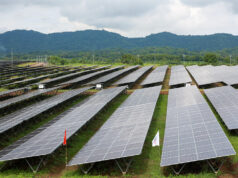Treasurer maps out plan to face higher debt costs
ONE of Asia’s fastest-growing economies is getting ready for higher borrowing costs, just as it embarks on a massive infrastructure spending program.
Philippine Treasurer Rosalia V. De Leon plans to conduct a peso-denominated debt exchange, the first in three years. The Treasury may also sell bonds to retail investors later this year to lock in rates before global central banks collectively begin to reverse stimulus of the past decade.
“We are prepared to meet the challenges, having rolled out reforms years ago,” she said in an interview this week.
“The Philippines remains a strong growth and credit story.”
Economic expansion in the Philippines, which topped six percent for the sixth year in 2017, is set to maintain momentum as President Rodrigo R. Duterte rolls out a $180-billion program to build roads and railways.
At the same time, the boom has led to twin deficits in the budget and current accounts.
The government last week sold $2 billion of global bonds, using $1.25 billion of the new debt to swap shorter, more expensive dollar bonds previously issued.
Debt exchanges helped cut interest payments to 12.4% of the budget in 2017, from 30% in 2006, according to data from the Treasury.
“If ever they issue a longer tenor bond, effectively they would be locking in fixed rates at relatively low levels,” said Orencio Andre P. Ibarra III, senior vice-president at Security Bank Corp.
“Definitely, the timing is good.”
The administration has room to borrow after the previous administration ran a tight fiscal policy with a budget-deficit goal of only two percent of gross domestic product.
Mr. Duterte, who took office in 2016, now anticipates widening that to three percent from 2018 to 2022.
Ms. De Leon said she has a number of fund-raising options to choose from this year, including a debut sale of yuan-denominated bonds. Return to the Japanese debt market.
The Treasury will review its borrowing strategy by midyear once it has a clearer picture of revenue and spending trends, de Leon said.
A record sale in November of P255 billion ($5 billion) to retail investors has given Ms. de Leon the headroom to cap borrowing costs by rejecting “out of line” bids, she said.
“As investors see that we have been managing our portfolio well, along with the stellar performance of the economy, they will see an upside in holding the debt” of the Philippines, even if interest rates were to climb, Ms. de Leon said.
The Philippines has a credit rating one notch higher than Indonesia at Moody’s Investors Service and Standard & Poor’s. — Bloomberg



